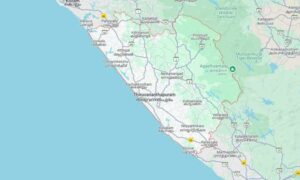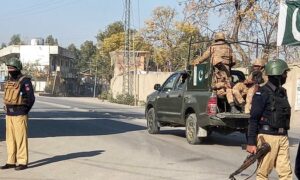There are two processes unfolding simultaneously with the electoral roll revisions in Bihar.
The first is a never-before-seen bureaucratic narrowing down in how voters get to stay on the rolls in Bihar and obtain the correct identity documents. At the same time, it is proving impossible to satisfy the bureaucratic remit of documentary proof in this election and beyond.
As has been made clear by the list released by the Election Commission on Sunday of the 65 lakh names that had been removed from the draft roll, the Special Intensive Revision is likely to lead to large-scale disenfranchisement. It can be seen as part of a broader trend by the Indian state to create a new category of “extraordinary citizens” who stand apart from mere “ordinary residents”.
“Ordinary residents” might even possess the correct documents and identity documents from Aadhar to ration cards but their belonging and “true Indianness” will always be suspect.
Extraordinary citizens are Indians who have ticked every box of proving their belonging and their right to vote not just in the documentary and procedural senses but also socially, politically and ideologically.
Extraordinary citizens and ordinary residents
Until recently, India’s electoral regime has been characterised by a laudable anxiety and democratic imagination to ensure that the election authorities planned for voters’ adversity, precarity, dispossession and even their emotional ties. In other words, voters were considered to be ordinary residents.
This administrative openness is now deliberately being narrowed down. The voice of citizens has become something to be legally proven with an unprecedented stringency. This bureaucratic constriction demonstrates that India is entering a dark new terrain.
In Bihar, the Election Commission has set out 11 documents for voters to be included in the rolls. The problem lies partly in what is included on the list – and what is not.
Furthermore, possessing these documents does not mean a person stands automatically identified, as they also need to pass the test of verification.
Identity documents are not merely pieces of sovereign state-issued paper. They also bear the markings of deeply plural yet distinctive histories of people’s struggle. Our research shows that in bureaucratic processes of providing identity documents, inclusive outcomes have resulted not just from political patronage and canny middlemen who have aided the poor in securing documents.
Rather, they have resulted from a deeply democratic imagination of who belongs, marked by meaningful reciprocities between the enumerators and the enumerated. Bureaucratic latitude and an openness to engage with complex manifestations of residential circumstances has been absolutely critical.
As academic Ornit Shani’s work on the historical making of the electoral rolls has shown, there was a capaciousness in the early imagination of the Election Commission in terms of the variety of documents that were allowed as proof of identity for voters to be registered in newly independent India.
Even the Manual on Electoral Rolls prepared by the Election Commission only in March 2023 is very clear on the category of “ordinary residents”.
Chapter 8 of the manual clarifies that voters do not have to have lived in a place for 180 days to be included on the rolls. Instead, the Electoral Registration Officer as well as the Booth Level Officer were required to “determine a question as to where a person is ordinary resident”. Even though it put a premium on the concept of “permanent residence”, this was presented as an idea rather than a definite administrative fact.
This status becomes clear when the Election Commission manual explores such categories of residents as homeless persons, sex workers, migrant workers and also, fascinatingly, overseas residents.
Even as the manual prescribed seven documents (including Aadhaar and passport) as evidence of voter eligibility, it did not strictly consign Booth Level Officers to follow these fiats. Instead, Booth Level Officers were expected to rely on sensible discretionary practices such as checking if the homeless person continued to be resident in the same place and submit verification reports to the Electoral Registration Officer.
Even in the extreme case of overseas Indian residents, whom the Election Commission clearly saw as non-resident, the process included them as a category of voter. The authority was bound to recognise the 2010 amendment of The Representation of the People Act under Section 20A, which indicated that they could be expected to be counted as voters as long as they retained their Indian citizenship.
Belonging in New India
It is also important to remember the non-documentary ways in which belonging and identification work in practice in the Indian state.
The starkest example of this is the recent crackdown on Bengali-speaking migrants across India. Bengali migrants have been detained in Rajasthan, Odisha, Chhattisgarh, and recently several have left Delhi and Gurugram before they were accused of being “illegal” Bangladeshis.
Similarly, thousands of Muslims in Gujarat – many of whom possessed the supposedly correct documents – were recently rendered homeless after a similar crackdown.
Being documented or holding the correct papers – including the much-vaunted Aadhaar – does not anymore qualify anyone for Indian citizenship nor protect them from violence. What India is seeing today is the creation of a new category of people whose citizenship is suspect because of caste, class, gender, name, language, occupation and, even, speech, dress and deportment.
In contrast, extraordinary citizens stand apart from ordinary residents in the sense that they have not only achieved the near-impossible feat of possessing all the correct identity documents but also exhibit the acceptable characteristics of belonging to New India. These citizens can immediately be identified as suitable and respectable.
In addition, these extraordinary citizens meet requirements that may be shifting– in this case, of voter identity, while also ticking majoritarian boxes of political acceptability. Only a dangerous naivete would lead Indians to believe that they will forever remain exempt from this impossible task of proving extraordinary citizenship.
A good example of this immense bureaucratic power to exclude someone from citizenship is the exercise to update Assam’s National Register of Citizens. It was meant to serve as a legal record of the rightful citizens of the state. The updated register that first came out in August 2019 excluded a staggering 1.9 million people, effectively rendering them stateless.
As journalist Abhishek Saha showed in his book No Land’s People, this really was a crisis in which only a few remained safe from the fear of imminent statelessness. In her work on the National Register of Citizens, the academic Fariya Yesmin demonstrates that some Muslim minorities legitimately feared being classified as foreigners for non-documentary reasons such as “appearance, religion, and language”.
What both Bihar’s Special Intensive Revision and Assam’s National Register of Citizens demonstrate is that even the most heavily documented could be swallowed up by the bureaucratic machine and spat out as inadequate.
In India today, citizens could possess a plethora of documents but that does not prevent some of them from being rendered illegal, whether by a Foreigners Tribunal in Assam or the Election Commission in Bihar.
An impossible Identification
Our research has also shown that it is incredibly difficult for people – especially minorities, migrants, and marginalised communities – to possess the correct identity documents at all times. Under the strictures laid down by processes such as the National Register of Citizens, they incur the risk of being nothing other than illegal.
What makes it further impossible to gauge how new processes of identifying voters or citizens will go is that there is a terrifying timing to them. Both the documentary and non-documentary modes of identification could – if dangerous measures such as the Special Intensive Revision are allowed to proceed – shift swiftly in line with political expediency.
For instance, in the case of Bihar’s voters, the upcoming elections can come to suddenly matter with a particular urgency.
Despite our critique of paper-based identity document regimes, it is clear that their transformation into cloud-based and other digital authentication mandates has not cleared the way for just welfare practices. Beyond the deaths that occurred either when beneficiaries of the Public Distribution System starved to death because their ration cards were not linked to their Aadhaar, we have newer fictions of people being declared dead by the Haryana state-issued Parivar Pehachan Patra (Family ID), which is algorithm-driven.
Where a consultative process of identification does not exist, neither documents, cloud-based identities, nor algorithms can establish people’s identities.
The Special Intensive Revision in Bihar is being described as an exercise that brings in a National Register of Citizens across India through the backdoor. While the parallels – especially this question of who is a citizen and who is not – are evident here, there are resonances but also disparities.
Staying attentive to the changes in how the Election Commission is defining the roll revision in Bihar show a related but different approach to the question of not just who can vote in New India but rather who can live in it.
As Assam’s National Register of Citizens (evidenced by the “doubtful” or “D” voter status applying to voters in Assam who could not prove their citizenship) and the current Special Intensive Revision have shown, a non-voter is also very likely to be counted as a non-citizen.
What is clear is that documents and identity cards have assumed monstrous powers over marginalised lives and that the state is clearly going further down the path of sorting out who can and cannot belong in New India.
Nayanika Mathur is the author of Paper Tiger: Law, Bureaucracy and the Developmental State in Himalayan India.
Tarangini Sriraman is the author of In Pursuit of Proof: A History of Identification Documents in India.
This article first appeared on Scroll.in
📰 Crime Today News is proudly sponsored by DRYFRUIT & CO – A Brand by eFabby Global LLC
Design & Developed by Yes Mom Hosting






